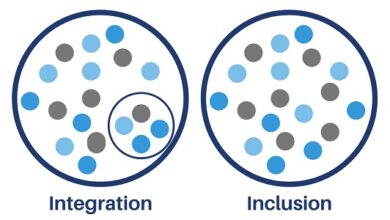Heteronomy definition with examples
Heteronomy
The word heteronomy comes from the Greek hetero, which means “other” and nomos , which means “law“. Therefore, heteronomy refers to the absence of will of an individual, governed by the rules or laws imposed by others either against his will or indifference to him, completely lacking autonomy. Heteronomy definition
Heteronomy is a term used to define people whose will is submissive to the rules or laws established by a third party . The first to study this phenomenon of behavior was the philosopher Immanuel Kant, who was looking for answers about the behavior of people in society.
Kant argued that there are two types of will, one generated by totally autonomous reason, being the person responsible for their actions and making their decisions. The other is called “inclination”, which indicates that a subject follows the current that marks society, adapting to its laws to be part of a whole.
It is important to note that heteronomy is found in any area of life in society. It can be the product of legal laws established by the government of a nation or by fashion trends generated by magazines. In either case, people follow such rules unreasoningly just to gain acceptance.
Explanation
According to this philosopher, heteronomy is the behavior that the person presents and that does not control it, at least not consciously and on the contrary said control comes from an external element, this implies leaving morality aside since as we said there are no Will in the acts of individuals, the same philosopher said that this type of behavior is the opposite of autonomy. The “Kant Philosophy” is known and in which he affirms that the will of the people is governed on the basis of two principles that are: reason or inclination, when we speak of the first then the actions originate in the will The person’s own, but when the second case occurs then the behavior is determined by other factors such as “sensitive appetites.”
Heteronomy refers to the dependence and submission of an individual whose behavior is under the control of a third person or external agent . Consequently, heteronomy is the opposite of autonomy.
The word heteronomy derives from the Greek heteros , which means “other” and, nomos that expresses “law.” Heteronomy definition
This term is used in the area of ethical philosophy in order to differentiate those people who develop their lives under a set of rules that have been imposed on them and that comply, in many cases, against their will, but in order of being accepted or integrating a social group.
This term is attributed to the philosopher Immanuel Kant , who dedicated himself to researching the will of the people and segmenting them into two branches: reason (autonomy) and inclination (heteronomy).
In this way, Kant sought to understand the behavior of individuals who follow the norms, laws and customs that characterize and govern the various societies to which they belong , which, according to him, are individuals who lose their freedom and independence because their behavior does not It follows its own reason but an external will.
Examples of heteronomy
There are different examples of heteronomy, because it is something that we humans experience from an early age.
A very common example is when children are playing and having fun in their independence and free imagination until, from one moment to another, the representative gives an order or scolds him because he must comply with some regulations such as not making noise, or disorder or get dirty.
At that moment the child must fulfill the call of attention and fulfill what has been requested, that is, act from the position of heteronomy and submission. Heteronomy definition
Another common example is when a group of people are aware of the latest fashion trends and do their best to follow them and live and express themselves according to the proposed styles.
Also, those cases in which people lead a lifestyle that is not precisely the one they like best fit into the examples of heteronomy, but they do so in order to achieve social recognition and follow the imposed models that are considered ethically, politically and religiously correct.
- Study medicine not by vocation, but because everyone in the family is a doctor.
- Dress according to the trends indicated by magazines.
- Start smoking because everyone does.
- Seeing women as property or objects because the laws or a religion indicate so.
- Being part of a mass of people who mistreat or “bullying” a subject.
- Abide by a political prohibition that prevents protesting for one’s own rights.
- Wear clothing that is fashionable and only appears in magazines.
- Marry under pressure from society, family and culture of a society.
- Watch a football game as a result of blind fanaticism and promoted by the media.
- See a group of people looting a store and do the same.
- Joining an activity even if it’s dangerous just because friends do it.
- Soldiers following orders.
